|
For kicking off Europe, I’m starting in Porto, Portugal at a conference called Biofilms 7. Biofilms 7 is a semi-annual meeting for research that is associated with biofilms in any way, shape, or form. A biofilm is basically a collection of cells, bacteria for example, that stick together in a community to form a film- think about the stuff that gets stuck on the surface of your pool that makes it feel slimy. Scientists attending the conference range in profession, from biofilms within the human body, to biofouling (clogging and deterioration) of pipes and drains, to productive biofilms for bioremediation (cleaning up contaminated sites with microorganisms) and renewable energy (microbial fuel cells and methane production). At the conference, I get the opportunity to meet professors and graduate students from all over the world. Perhaps one of the best features of the conference is that they have espresso machines to make sure everyone gets their own custom espresso throughout the conference.
After the conference, most of my time is spent hanging out with people I meet in the hostel- the Porto Spot hostel- “one of the best rated hostels in the world.” The first thing I do after checking in is carry all of my gear up three flights of stairs to my three bunk bedroom. The atmosphere at the hostel is very relaxed and accommodating.
The Portuguese, as with most any Europeans, watch football (soccer) religiously. While I’m staying in the hostel, Portugal is playing two games. I notice, the night before one of the games, the chalkboard in the kitchen at the hostel says that Portugal is playing Poland and that free beers will be administered for every goal that Portugal scores- I’m in! Portugal ends up scoring once (free beer!) and Poland ends up scoring once. This means penalty shots- after some friendly discussion with the hostel employees about what the ‘shot’ in penalty ‘shot’ means, given the context of a free beer per goal, they ultimately decide that there is no way they are going to be able to accommodate giving all the hostel guests watching the game (see: all the hostel guests) a beer or shot every time Portugal scores a penalty shot. A consensus is reached and, after Portugal ultimately proves victorious: “You get a beer, and you get a beer, and you get a beer- everybody gets a beer!”
For entertainment, we decided to play some card games that, of course, involved drinking. The first game we played was called ‘horse races’ or something like that. Anyway, the rules aren’t really important- essentially, the person that wins gets to tell whoever loses how many drinks they need to consume. This game lasted one round before we moved on to Shit-head for a few rounds. Then, the Danes decided to teach Zev and me a little game I’m going to call “Roll a six and count to 100.” In this game, everyone gets a sheet of paper and, for the entire table; there is one di and one pencil. In the middle of the table is a glass which contains an alcoholic beverage of your choice. The game’s simplicity is really the key here, you see, to play this game each person needs to roll the di. Once a six is rolled, the person who rolled it needs to drink the cup on the table, refill the cup, pick up the pencil, and start writing down numbers sequentially from 1-100. Once someone else rolls a six, they take the shot in the middle, refill the glass, and then take the pencil and start writing down 1-100 on their sheet of paper. The first person to reach 100 (after stringent verification techniques from the table, ie: telling the person who won to go fuck themselves because they’re a cheater no matter what) wins. Sounds simple, sounds a little sophomoric; this game had me laughing so hard I almost threw up. I’ve never seen so much beer and wine and glass and soggy paper and laughter in my life.
Before I conclude with highlighted presentations, I want to share a few adventures I took during my stay in Porto. During the boat ride on the Douro, I noticed several abandoned buildings along the sides of the mountain. I also noticed that those buildings appeared to be accessible from paths on the road. The next day, I decided to run over to those locations to scout them out in a little bout of urban exploration. The videos below document my journey through the abandoned mountainside of Porto.
Above, students play beautiful music in the street.
Some presentations worth highlighting:
Eberhard Morgenroth (Switzerland) spoke about next generation wastewater treatment processes. Abstract Page 50. (Based on a conversation I had with Dr. Morgenroth, I was invited to present in Switzerland in October.) Gillian Lewis (New Zealand) spoke about shifts in microbial communities in northern New Zealand that are related to seasonal changes during the year. Abstract page 10. Thomas Wood (United States) spoke about reversing methanogenesis to capture methane using archaea. Abstract page 29. Edo Bar-Zeev (Israel) spoke about reducing biofouling in systems that use pressure retarded osmosis to generate power from salt gradients in order to enhance efficiency. Abstract page 27. Markus Stockl (Germany) generated a flow cell to get electroactive biofilms to grow on a transparent surface material called indium tin oxide (the same thing that the screen on your phone is made of). Abstract page 62. Alain Bergel (France) talked about the current state of electroactive biofilms. Abstract page 26. Caroline Rivalland (French Guinea) talked about the role of minority microbes in electroactive biofilms. Abstract page 28. Haluk Beyenal (United States) took on the hefty task of talking about electron transfer mechanisms in electroactive biofilms. Abstract page 35. Cristian Picioreanu (Netherlands) mathematically modeled nitrogen cycling in granular sludge reactors. Abstract page 45. My abstract is on page 153.
0 Comments
Leave a Reply. |
Science /ˈsīəns/
|

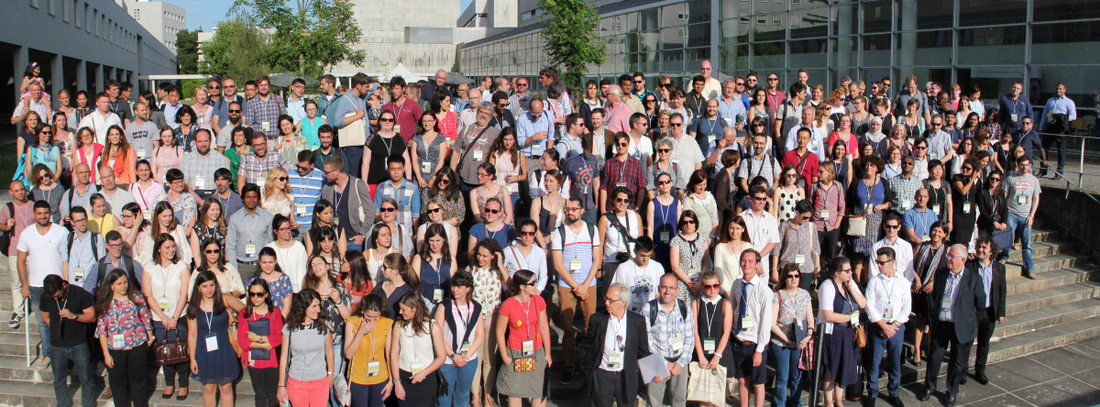
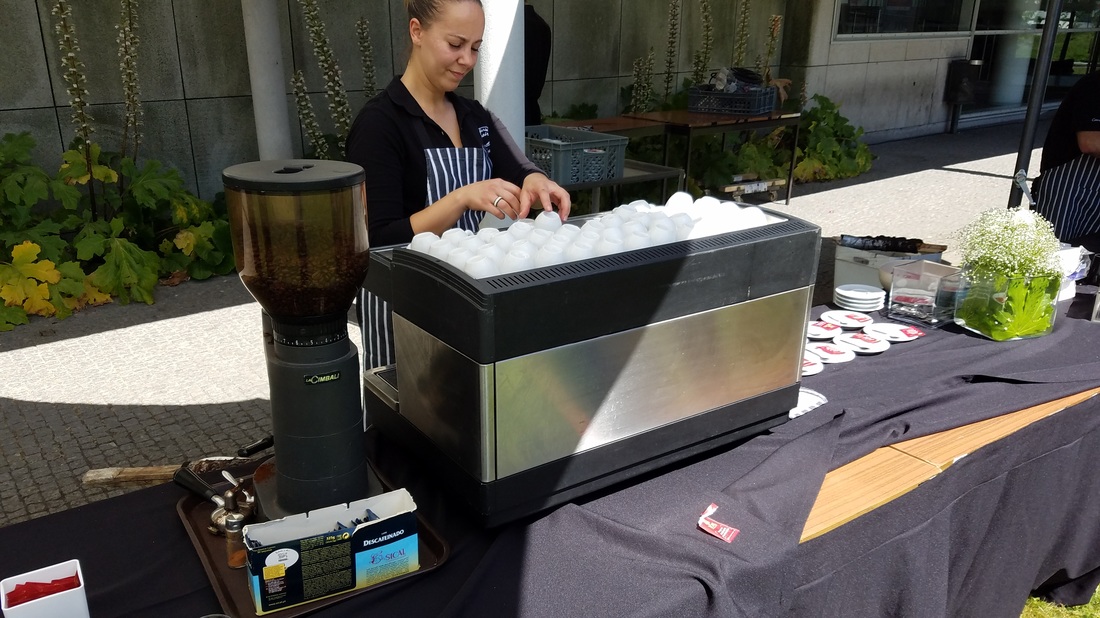
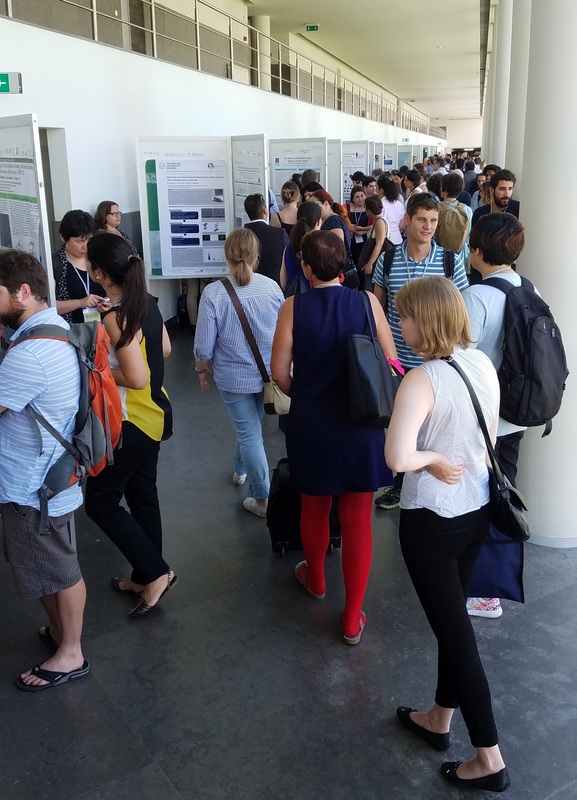
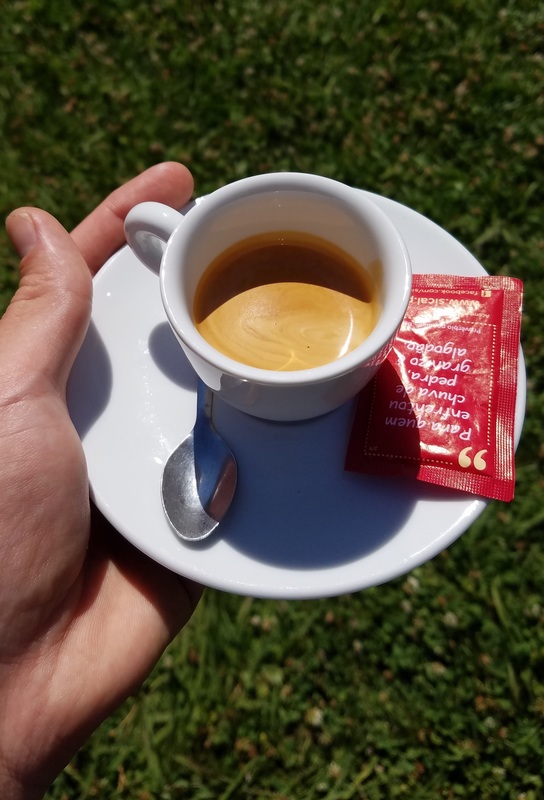
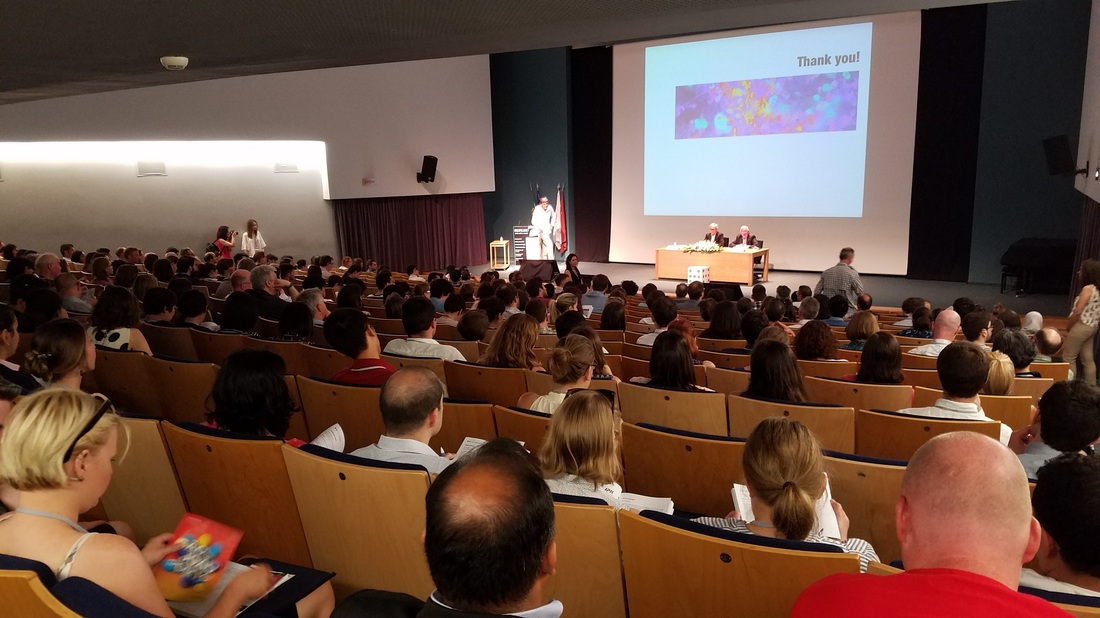
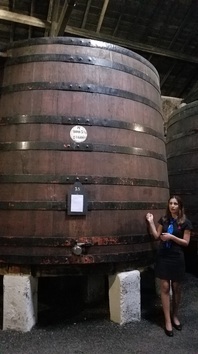
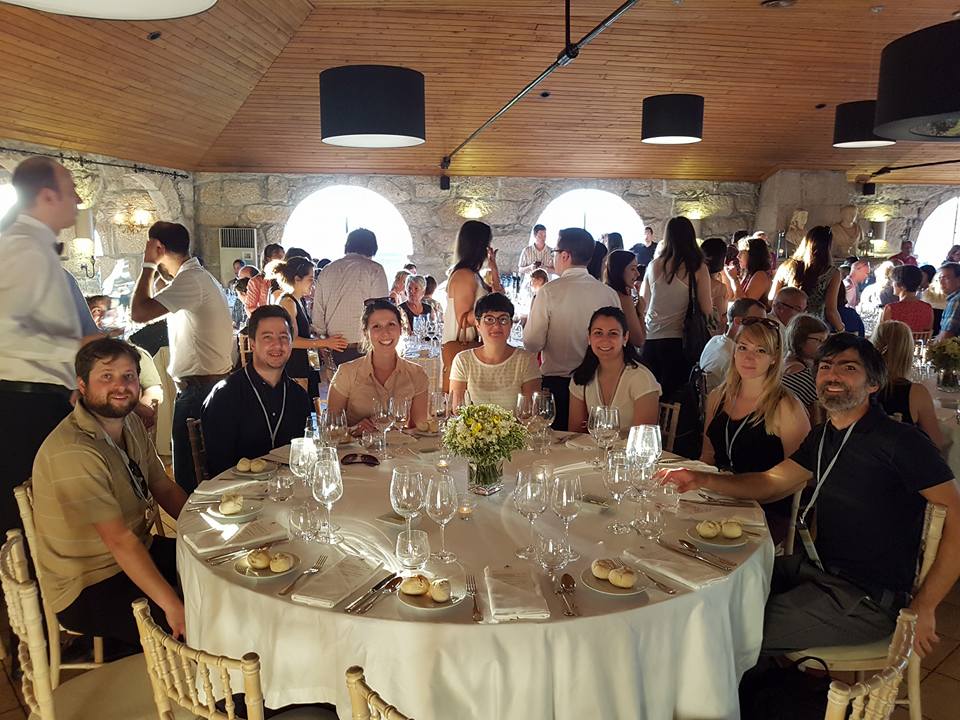
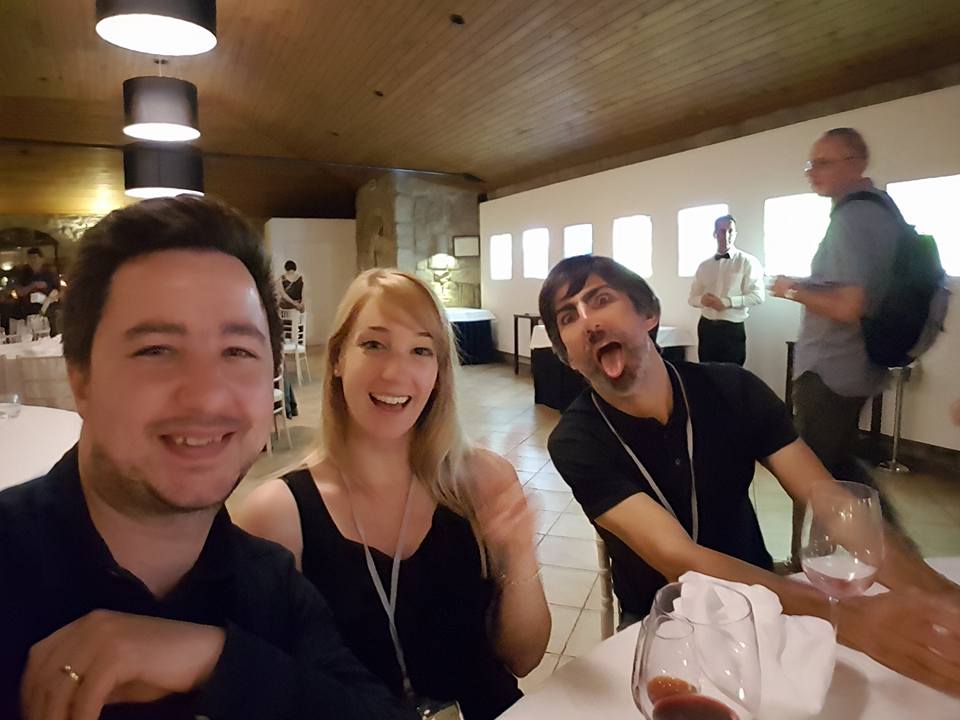
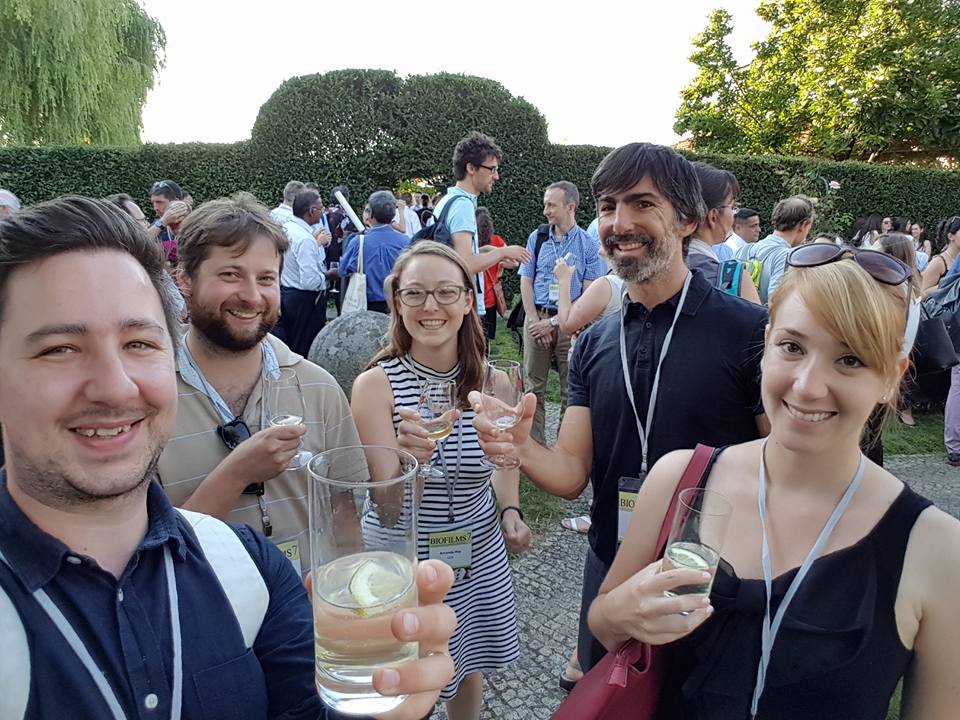
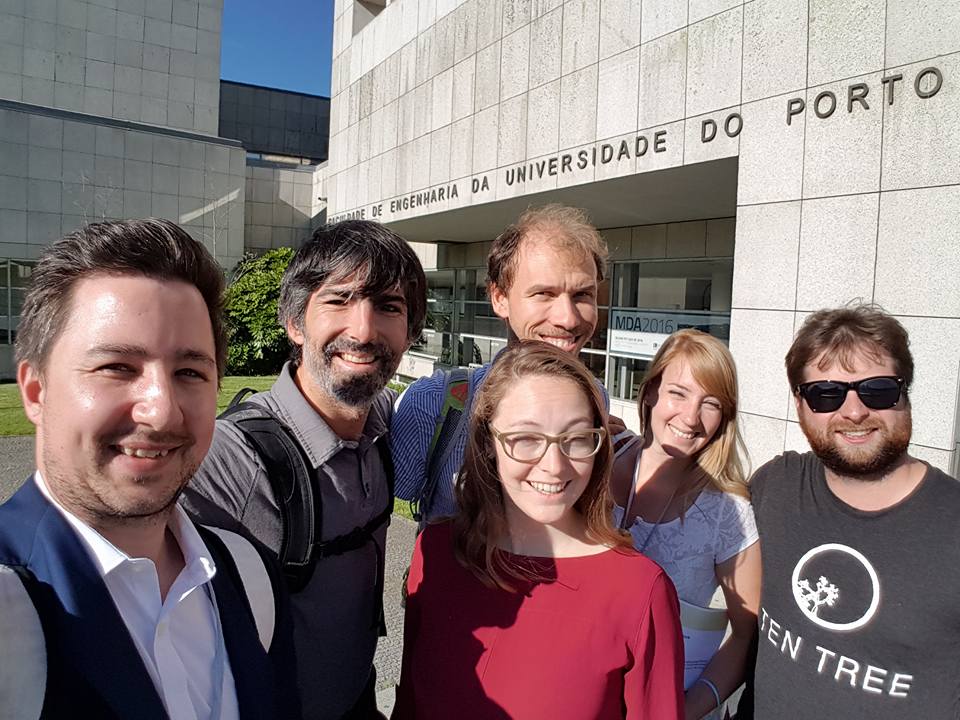
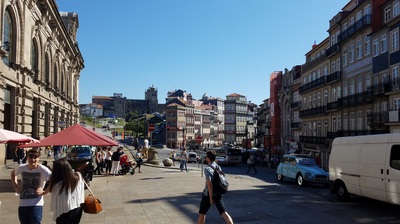
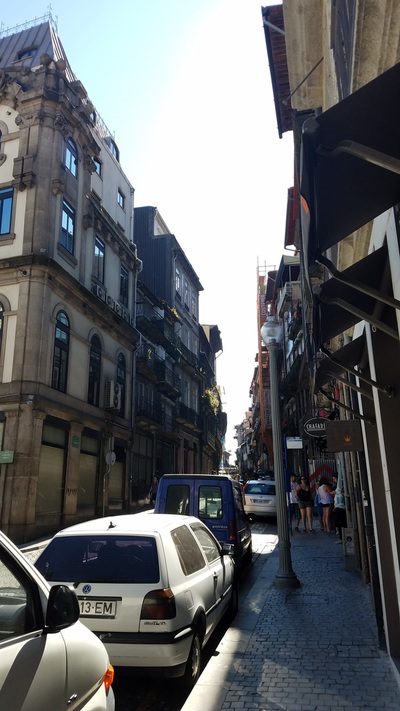
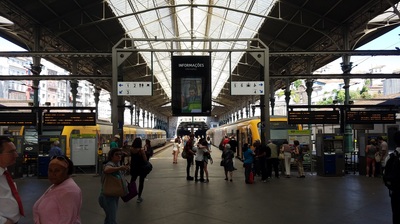
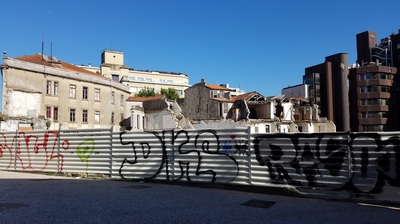
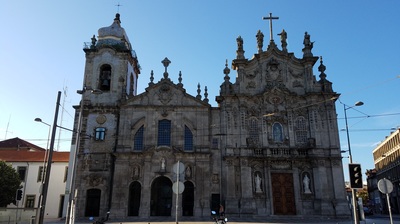
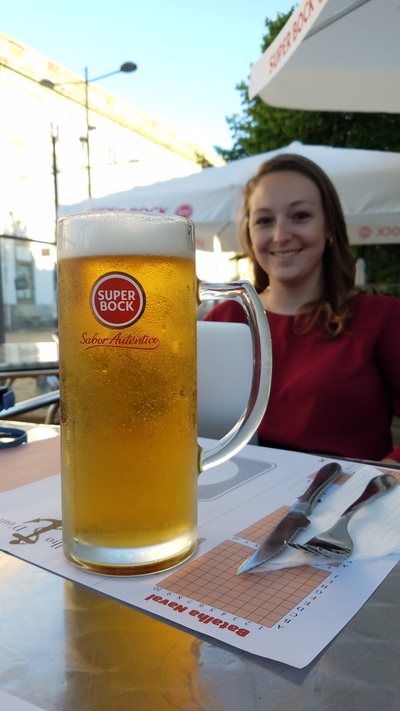
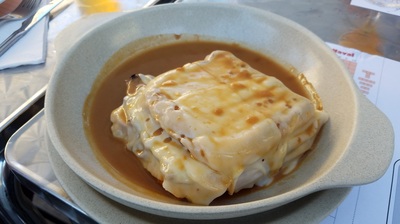
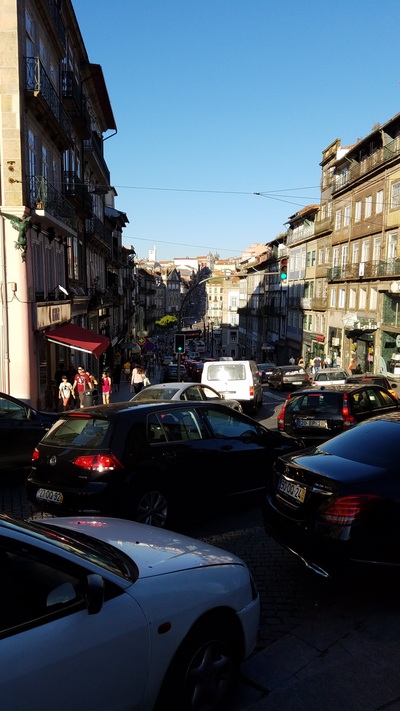
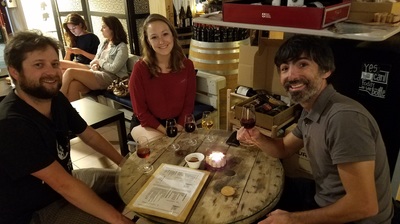


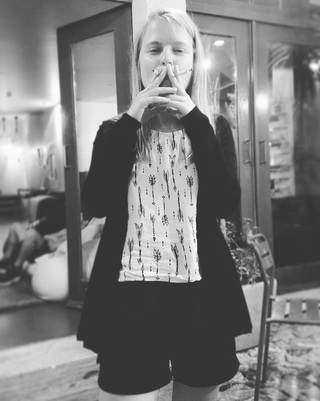
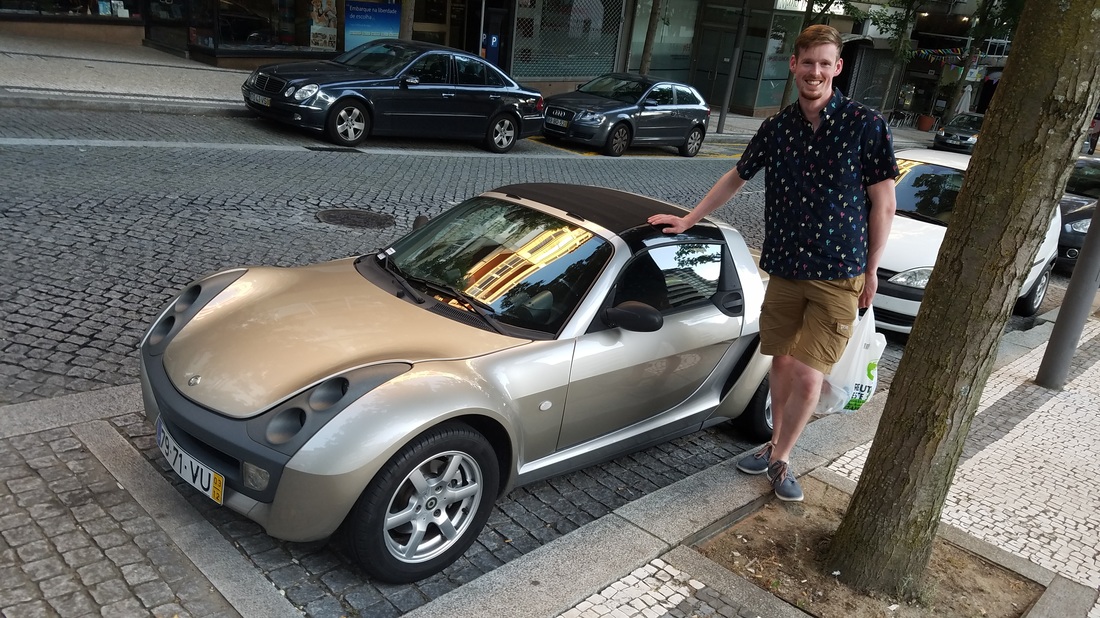
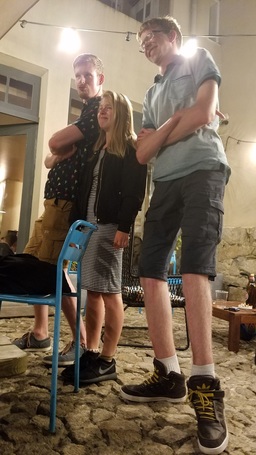
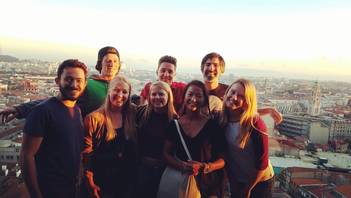

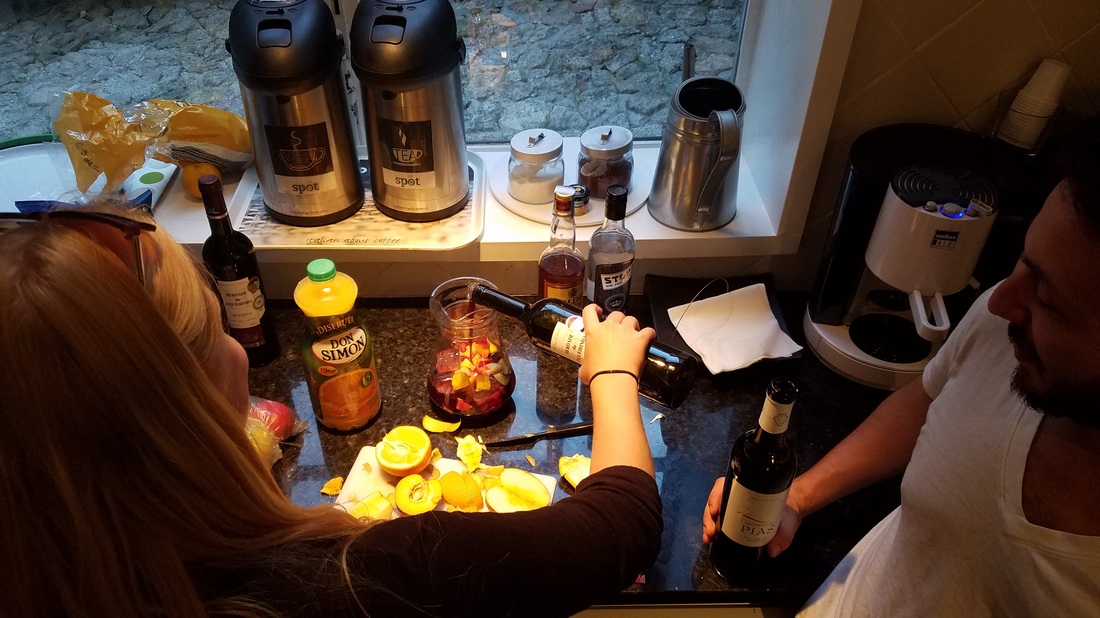
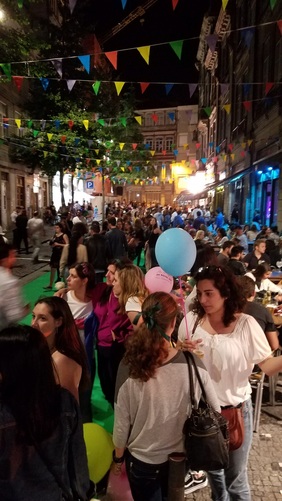
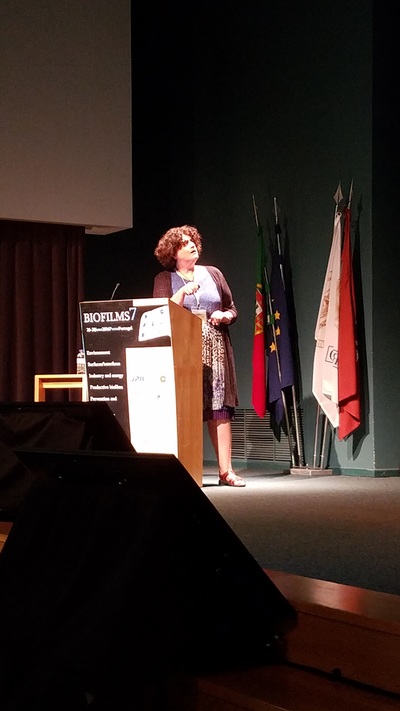
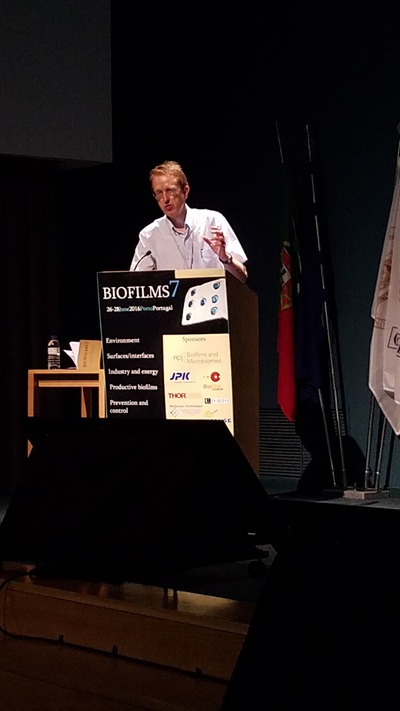
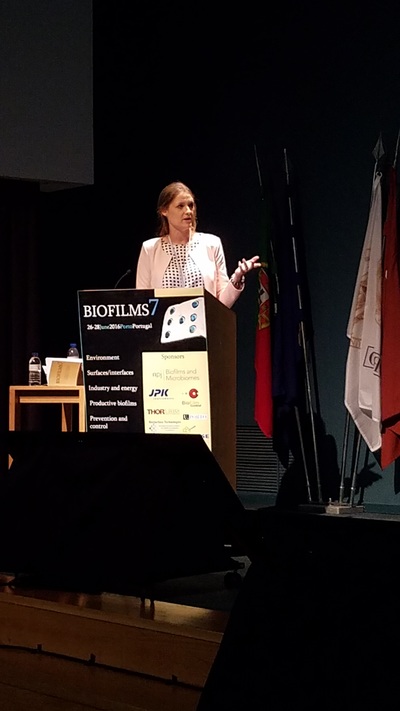
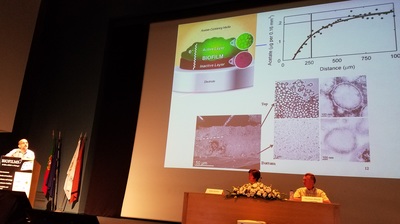
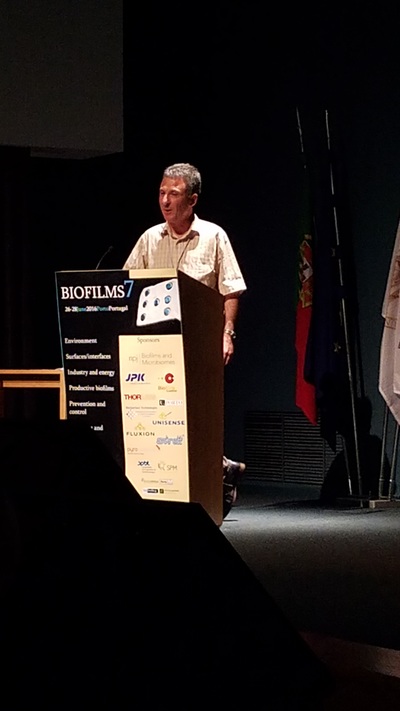
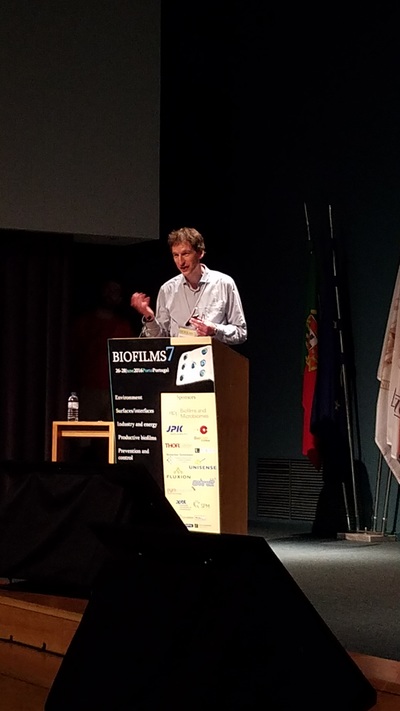
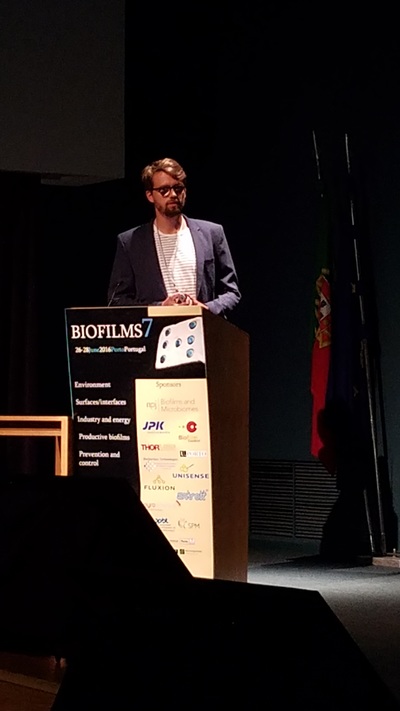

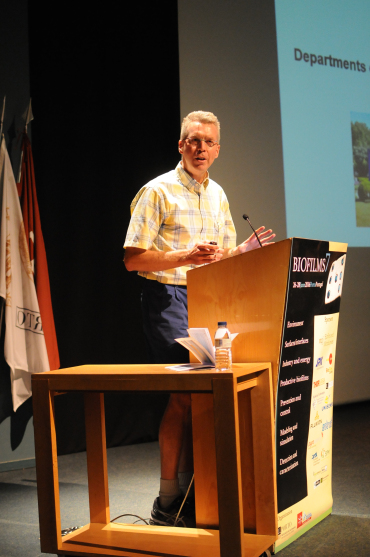
 RSS Feed
RSS Feed